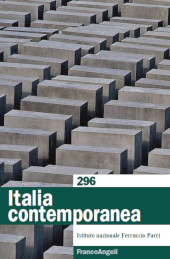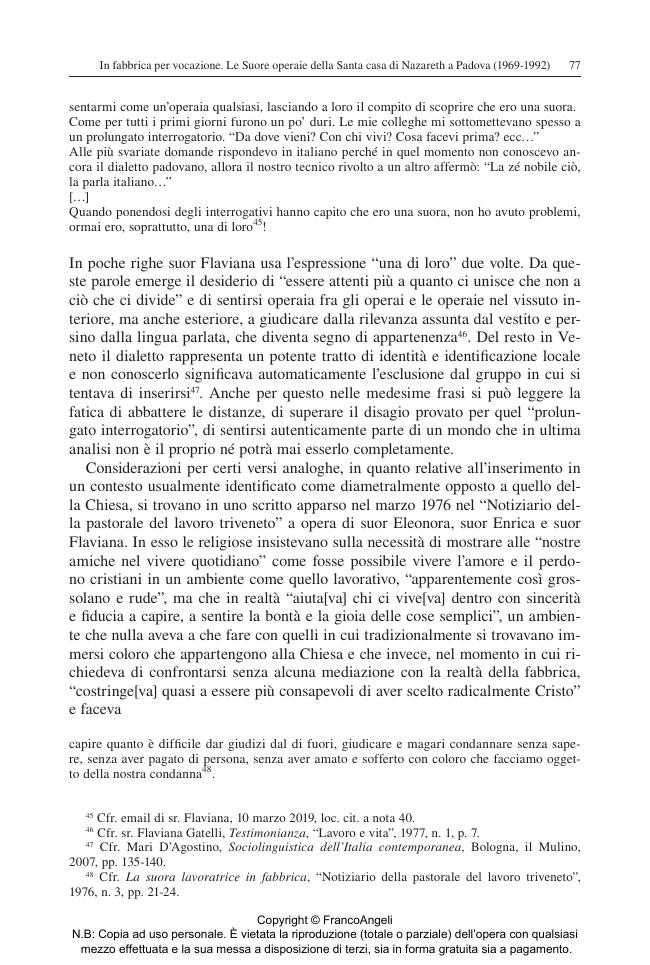In fabbrica per vocazione : le suore operaie della Santa casa di Nazareth a Padova (1969-1992)
63-90 p.
L'istituto delle Suore operaie della Santa casa di Nazareth fu fondato da don Arcangelo Tadini (1900), prendendo spunto dalla Rerum novarum. È ancora poco studiato nonostante il fine, insolito per una congregazione femminile: avvicinare le operaie condividendone il lavoro e supportandole con un apostolato specifico. L'approvazione diocesana e quella pontificia dell'ordine tardarono ad arrivare soprattutto per la discrepanza tra il suo scopo e la dottrina sociale cattolica, che vedeva nel lavoro extradomestico femminile uno dei principali motivi di destabilizzazione familiare. La ricerca, all'incrocio tra storia delle donne, storia del cristianesimo e storia del lavoro, si focalizza sull'esperienza di fabbrica delle suore a Padova tra gli anni Settanta e Ottanta del Novecento.
Fondamentali sono state le testimonianze orali e scritte di sei religiose, che testimoniano la specificità dell'approccio femminile al lavoro rispetto ai cappellani del lavoro e ai preti operai. Hanno inoltre rivelato aspetti finora sconosciuti, specie sul rapporto tra Chiesa e lavoro, anche da una prospettiva di genere. [Testo dell'editore].
The religious institute of the Working sisters of the Holy house of Nazareth was founded by don Arcangelo Tadini in 1900, and was inspired by the Rerum novarum. Scholars have devoted but scant attention to this casestudy, despite the fact that it had a rather unusual purpose for a female congregation: namely, that of reaching female workers by sharing their activities in the workplace and supporting them with a specific apostolate. The approval of the order was very slow both at the diocesan and the pontifical level, especially because of the discrepancy between the congregation's purpose and the Catholic Church's social teaching, which considered female nondomestic work as one of the main reasons for family destabilization. This article examines the factory experience of the Working Sisters in Padua between the 1970s and the 1980s, by intersecting women's history, the history of Christianity, and labor history.
It draws on the oral and written testimonies of six nuns. These sources testify to the specificity of women's working experience, compared to the experience of chaplains of work or working priests. They also reveal aspects yet unknown, especially concerning the relationship between the Church and labor, also from a gender perspective. [Publisher's text].
Fa parte di
Italia contemporanea : 296, 2, 2021-
Articoli dello stesso fascicolo (disponibili singolarmente)
-
Informazioni
Codice DOI: 10.3280/IC2021-296003
ISSN: 2036-4555
PAROLE CHIAVE
- Suore Operaie, Dottrina sociale cattolica, Storia delle donne, Storia del cristianesimo, Storia del lavoro, Fonti orali
- Working sisters, Catholic social teaching, Women's history, History of christian religion, Labour history, Oral histories



